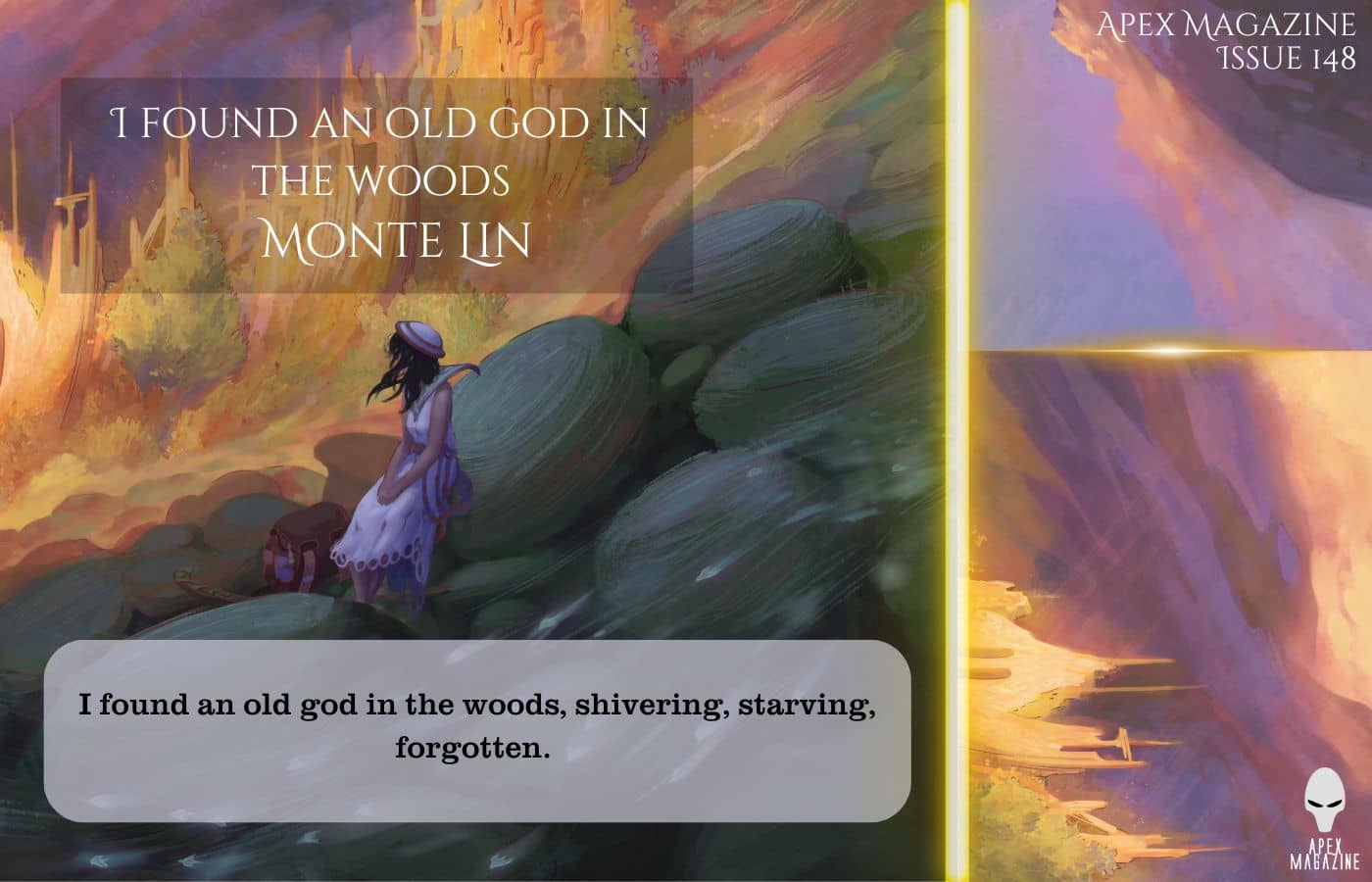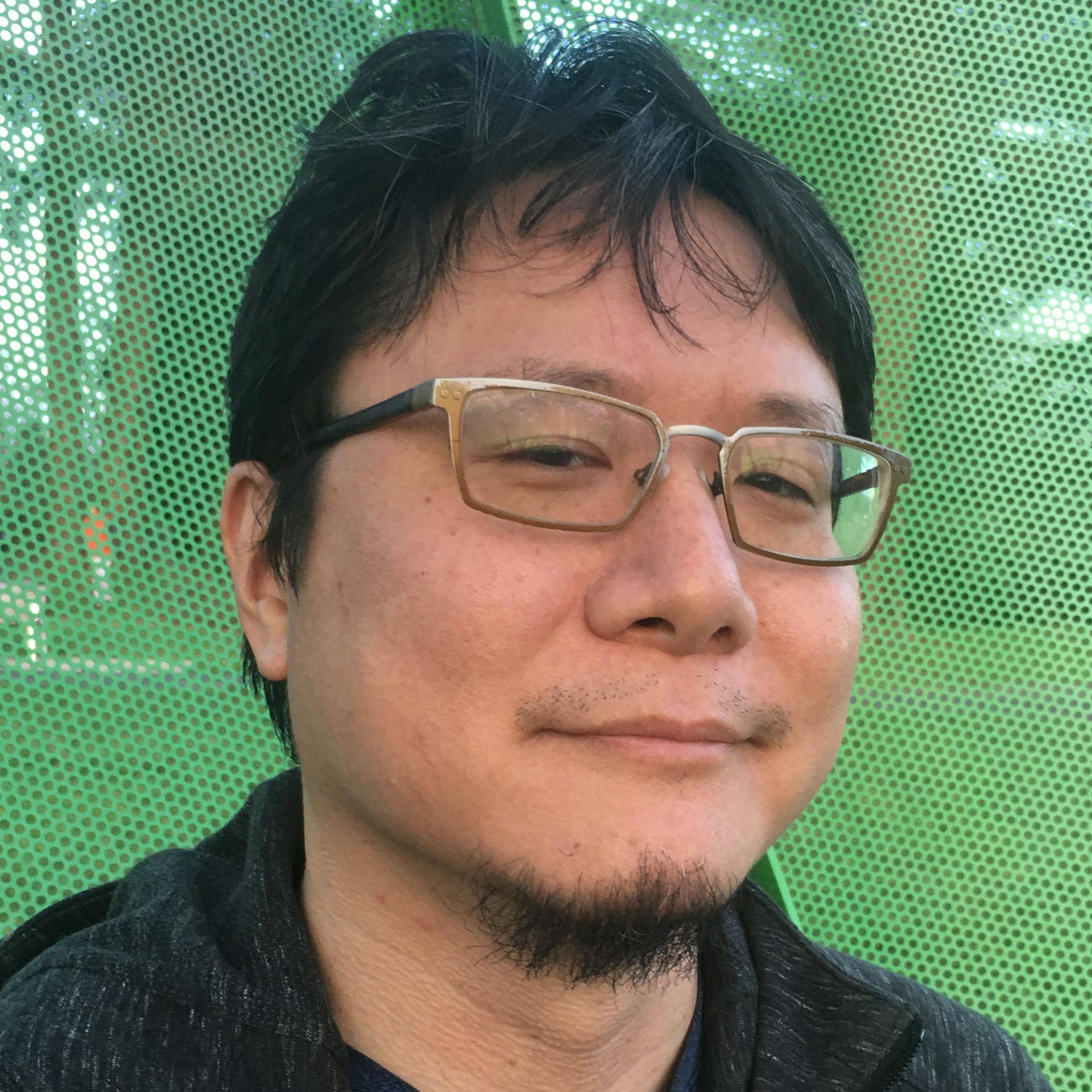
I found an old god in the woods, shivering, starving, forgotten. With eyes of gold, skin the color of old loam hardened and wrinkled as time, fingers the roots of trees, and a tongue of moss, tā begged for help.
(English pronouns seemed sacrilegious for an old god, so I used the Chinese pronoun 祂.)
“What do you need?” I asked tā, surprising myself. I expected to be alone on my hike.
With a voice of creaking bark, tā requested:
Water hand-drawn from a well
Sacrifices and memories in soil
Ashes of the one you loved
“I could take you home.” Again, surprise. The thought of sharing even a small piece of my life weighed heavy. “I can care for you there.”
No, it is humans who have aged me
Even this wode has your hand, planted and planned
No longer wild
I returned home and from my old thirty-foot well, drew murky water into a bucket, made of bright blue plastic, leftover from an abandoned gardening project with friends long moved away. From the compost heap, I removed six rotting oranges that once sat at the house shrine to my parents. From the fireplace, I gathered the ashes from the letters written by my ex-love—
(No, not ex-love, the love has not left, even when they did, but in my grief, I had burned their letters.)
With this I nourished the old god. Not just nourished, but invested with dignity. Tā drank the water, and the loam turned the multiple colors of mushrooms. Tā ate the oranges, and flowers bloomed on tā’s arms and legs. Tā ate the ashes, and teeth grew out black and sharp.
Tā turned to me, and I could feel the embers of something ancient and everlasting.
We used to be Wild, the terror in the dark. You feared us
But now even your wodes are tended parks, orderly, safe
You humans are the new terror in the dark
Feared yet still full of fear
You are the New Wild, hungry for blood and preying on all
You burn the blood of monsters
You sacrifice your children every day
You seek to flood the night sky with your own stars
Old gods don’t die, they linger
Slowly hollowing out until we are nothing but a shell
There was acceptance in those words, but also sadness. A sadness of deep water, dark blue and still. I knew that sadness, almost drowned before, anchored by a heavy heart. “What do you need?”
An end of this lingering
The finality you humans fear
“What if we trade? You get my mortality, and I get your divinity.” I didn’t know why I said this. I had never thought of immortality before this, not in any real, meaningful way. I thought I would linger and then fade like a stone weathered by the ocean.
You would no longer be you
No longer singular, finite, final
“I don’t exactly want my singular, finite, final life right now.”
The old god stood up and for a moment, tā towered over me, the crown of tā’s head scraping the clouds. In a blink of my eye, tā appeared normal again, albeit still several feet taller than I.
Divinity cannot be granted
On fickle whims
On humans unwilling
To carve out a life they wish
“It is a sincere offer.” I was unmoved by this display, unbowed by tā’s power. What I thought was bravery or defiance, though, I would learn later to be a misunderstanding of my heart. Perhaps tā saw this, because tā returned to tā’s previous withered self.
So be it then
I shall take on your destiny to die
And you shall take on my destiny everlasting
Those golden eyes grew to encompass the horizon. And I became eternity.
Human beings aren’t designed for surety
To know themselves and others without flinching
Becoming divine simply makes you more you
When mortal, I was also hollowing out into a shell
Now my everflowing tears salt the earth, kill the soil for generations
My heart was not heavy, as I thought
But a vacuum, as I feared
Pulling, needing everything inward to fill the endless void
To protect the Earth I launch myself into space
My skin becomes nebuladust
My eyes dark stars
My teeth moons
Those who pray with a heart weighed down by sadness
I offer to take it
Replace it with a void full of galaxies
To carry you through your trials
I will hold your heart until you are ready for its return
In exchange I ask only for you to remain human
Embrace your finiteness, your uncertainty
There is a joy in not knowing
To be bounded in time
To have an end at your sentence
Because it means you can change
Content Warning(s): None











